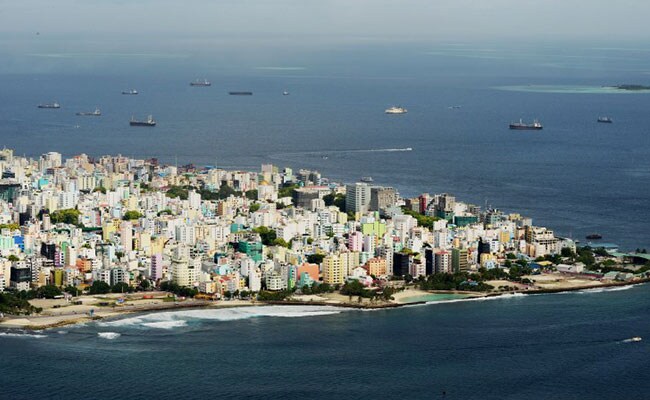
India has asked its citizens not to visit Maldives and other atolls until further notice (AFP)
- India follows certain procedural steps to keep its troops ready
- India has already asked its citizens not to visit Maldives
- Ex-Maldivian president urged India to send envoy backed by military
Did our AI summary help?
Let us know.
New Delhi:
In response to the crisis in the Maldives, India is likely to keep its troops ready after the government said it was "disturbed by the declaration of a state of emergency" in the archipelago. Troop movement was seen at a key air base in southern India, news agency PTI reported quoting unnamed sources.
India follows certain procedural steps to keep its troops ready to face any eventuality, respond to crisis or a call for help, PTI reported, adding that the procedure is not unusual.
India has already asked its citizens not to visit "Male (Maldives' capital) and other atolls until further notice".
The Maldives plunged into a crisis after President Abdulla Yameen refused to abide by a Supreme Court ruling that quashed terrorism convictions against nine leading opposition figures, including the exiled Mohamed Nasheed, who was the first democratically elected president in the Indian Ocean's archipelago.
The former Maldivian president has urged India to send an envoy backed by military to release political prisoners.
Mr Yameen, who came to power in 2013 after winning a controversial run-off against Mr Nasheed, has presided over an escalating crackdown on dissent, jailing almost all the political opposition. The Supreme Court ruling gives the opposition the majority in the assembly meaning they could potentially impeach the president.
It also paves the way for Mohamed Nasheed to return and run for President. Mr Nasheed, who was president from 2008 to 2013, was controversially convicted of terrorism in 2015 and sentenced to 13 years in jail. He was allowed to go to Britain for medical treatment in January 2016. He has lived in exile since and is currently in Sri Lanka.
The Indian Navy conducts routine peacetime patrols in the sea lanes around the Maldives.
Mr Yameen has drawn close to China and Saudi Arabia during his time in office, with both countries investing heavily in the tiny nation. Located near key shipping lanes, the Maldives have assumed greater importance to China after it began building political and economic ties as part of its so-called "String Of Pearls" strategy to build a network of ports in the Indian Ocean region.
Having historically held more clout in the islands, India has sought to push back against China's growing influence there.
With inputs from PTI
India follows certain procedural steps to keep its troops ready to face any eventuality, respond to crisis or a call for help, PTI reported, adding that the procedure is not unusual.
India has already asked its citizens not to visit "Male (Maldives' capital) and other atolls until further notice".
The Maldives plunged into a crisis after President Abdulla Yameen refused to abide by a Supreme Court ruling that quashed terrorism convictions against nine leading opposition figures, including the exiled Mohamed Nasheed, who was the first democratically elected president in the Indian Ocean's archipelago.
The former Maldivian president has urged India to send an envoy backed by military to release political prisoners.
Mr Yameen, who came to power in 2013 after winning a controversial run-off against Mr Nasheed, has presided over an escalating crackdown on dissent, jailing almost all the political opposition. The Supreme Court ruling gives the opposition the majority in the assembly meaning they could potentially impeach the president.
It also paves the way for Mohamed Nasheed to return and run for President. Mr Nasheed, who was president from 2008 to 2013, was controversially convicted of terrorism in 2015 and sentenced to 13 years in jail. He was allowed to go to Britain for medical treatment in January 2016. He has lived in exile since and is currently in Sri Lanka.
The Indian Navy conducts routine peacetime patrols in the sea lanes around the Maldives.
Mr Yameen has drawn close to China and Saudi Arabia during his time in office, with both countries investing heavily in the tiny nation. Located near key shipping lanes, the Maldives have assumed greater importance to China after it began building political and economic ties as part of its so-called "String Of Pearls" strategy to build a network of ports in the Indian Ocean region.
Having historically held more clout in the islands, India has sought to push back against China's growing influence there.
With inputs from PTI
Track Latest News Live on NDTV.com and get news updates from India and around the world

